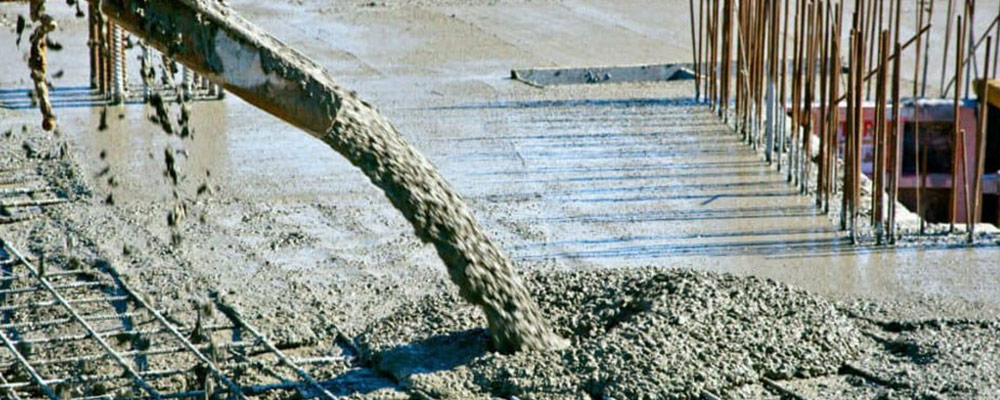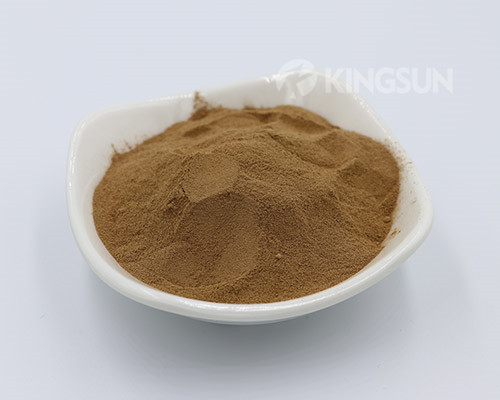 Sodium Lignosulfonate Sample
Sodium Lignosulfonate Sample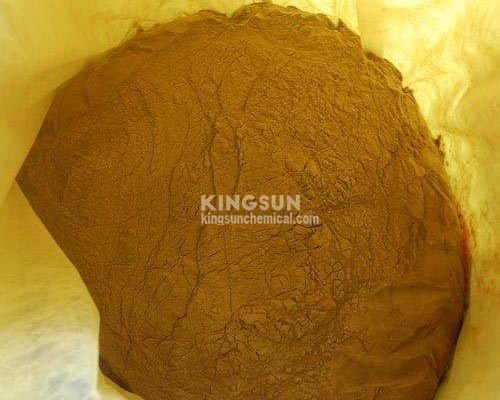 Sodium Lignosulfonate Powder
Sodium Lignosulfonate Powder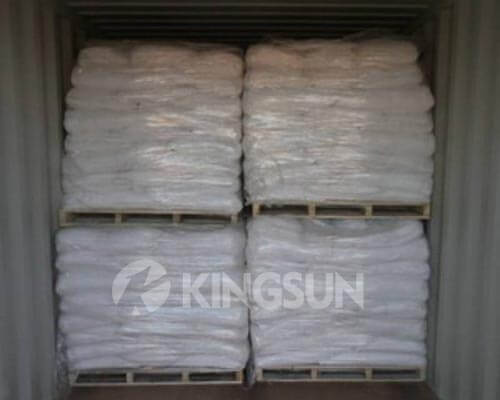 Kingsun sodium lignosulphonate to Vietnam
Kingsun sodium lignosulphonate to Vietnam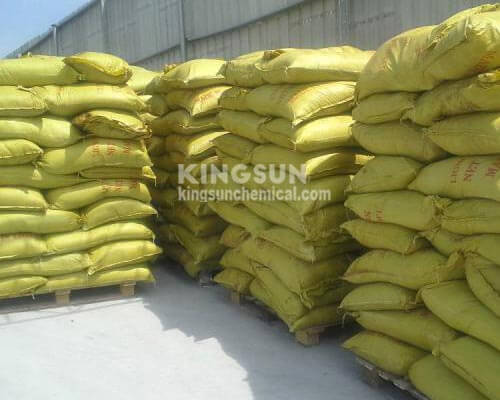 Sodium Lignosulfonate to Iraq
Sodium Lignosulfonate to Iraq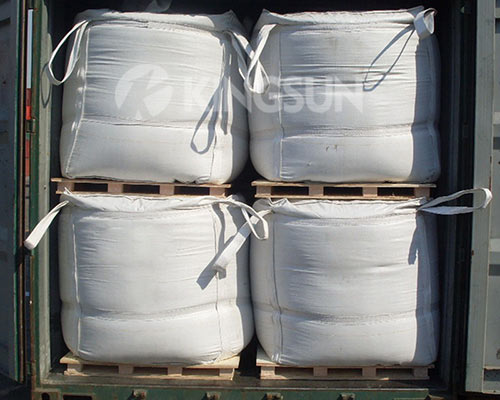 sodium lignin sulfonate with 600kg jumbo bag
sodium lignin sulfonate with 600kg jumbo bag
Sodium lignosulfonate is an important organic compound with the chemical formula C20H24Na2O10S2. It usually appears as a yellow-brown free-flowing powder, and sometimes in liquid form. It has no special odor, is non-toxic, is easily soluble in water and alkali solution, and is easily precipitated in the presence of acid, and has a strong dispersibility. The product has stable chemical properties and will not decompose in long-term sealed storage.
Its aqueous solution is chemically stable and biodegradable. It is unaffected by pH fluctuations and is insoluble in common organic solvents such as ethanol and acetone. Its aqueous solution is brown to black and exhibits colloidal properties. Solution viscosity increases with increasing concentration. Sodium lignin sulfonate has little effect on reducing interfacial tension between liquids, cannot reduce the surface tension of water, or form micelles. Its dispersing effect primarily relies on adsorption and desorption from the substrate and the generation of charge.
As a multifunctional and highly effective chemical additive, sodium lignosulphonate powder can be widely used in many fields such as construction, mining and smelting, agriculture and fertilizers, petroleum and energy, environmental protection and soil improvement,etc.
| Items | Sodium Lignosulfonate |
| Appearance | Yellow Brown Powder |
| Dry Matter % | 92 min |
| Lignosulphonate % | 60 min |
| Moisture % | 7 max |
| Water insoluble matter % | 0.5 max |
| Sulphate (as Na2SO4) % | 4 max |
| PH Value | 7.5-10.5 |
| Content of Ca and Mg % | 0.4 max |
| Total reducing matter % | 4 max |
| Content of Fe % | 0.1 max |
| Packing | Net 25kg PP bags; 550kg jumbo bags; |
Main Uses of Kingsun Sodium Lignosulfonate
Especially in the construction projects industry, sodium lignosulfonate can be used as an efficient and environmentally friendly concrete water reducer, which has a wide range of application prospects and important economic value. It is particularly suitable for large-volume concrete, high-fluidity concrete, pumped concrete, commercial concrete and summer concrete construction. At the same time, it is also suitable for concrete projects with special requirements for slow setting, such as cast-in-place pile concrete, pipe-sinking pile concrete, artificial bored pile concrete and underground large-volume concrete construction.
- Main Advantage
-
Product Features
-
Market Trends
- Main Mechanism of Action
As the first generation of ordinary concrete water reducing admixture, sodium lignosulfonate has the characteristics of low cost, low ash, low gas content, environmental friendliness, and strong adaptability to various cements. When used as a concrete water reducer, sodium lignin sulfonate can improve the fluidity and plasticity of concrete, reduce water consumption, and improve compressive strength. Specifically, the main advantages of sodium lignosulfonate in concrete are reflected in the following aspects:
- The water reduction effect is obvious. The dosage of sodium lignin sulfonate water reducer is usually 0.20-0.30% of the cement dosage, and the commonly used dosage is 0.25%, and its water reduction rate can reach 9-11%. This means that while keeping the workability of concrete unchanged, the amount of mixing water can be significantly reduced, and the density and strength of concrete can be improved.
- Enhance concrete strength. Under appropriate dosage, sodium lignosulfonate can significantly improve the early and late strength of concrete. Compared with the benchmark concrete, the 3-day strength can be increased by 15-20%, the 7-day strength can be increased by 20-30%, and the 28-day strength can be increased by 15-20%.
- Improve concrete workability. The sodium lignosulfonate water reducer can increase the fluidity of concrete, improve its workability, and make the concrete mixture more uniform and easy to construct.
- Save cement. While keeping the slump and strength of concrete the same as the benchmark concrete, the use of sodium lignosulphonate can save 8-10% of cement. Every ton of sodium lignin sulfonate water-reducing agent powder used can save 30-40 tons of cement, which has good economic benefits.
- Improve impermeability and durability. Sodium lignin sulfonate water reducer can improve the impermeability and durability of concrete, reduce the shrinkage and creep of concrete, and is beneficial to large-volume concrete and summer construction.
- Delaying the setting time. After adding sodium lignosulphonate, the initial setting time and final setting time of concrete will be delayed. This is particularly beneficial for summer construction, transportation of commercial concrete and large-volume concrete projects, and can effectively avoid problems caused by too fast setting.
- Non-toxic. It is non-toxic and biodegradable, making it an eco-friendly choice for a variety of applications.
- Dispersibility. Sodium lignin sulfonate has excellent dispersibility, which makes it very useful in concrete production, where it helps disperse cement particles and prevents caking.
- Compatibility. The product is compatible with a wide range of other chemicals, so it can be formulated into accelerators, retarders, antifreeze agents, pumping agents, etc. If used with a naphthalene-based high-efficiency water reducer, no precipitation will occur in the liquid mixture.
- Adhesive properties. It can be used as a binder in a variety of applications, including animal feed, fertilizers, and pesticide formulations.
- Chelating properties. The chemical has chelating properties, which means it can bind to metal ions and form stable complexes. This makes it very useful in industrial applications, such as metalworking and water treatment.
- Humectant properties. Sodium lignosulfonate can help retain moisture in certain materials, such as paper, textiles, and leather.
- Cost-effectiveness. Compared to other chemicals with similar properties, sodium lignosulphonate is an affordable option and is well suited for industrial applications.
The global sodium lignosulfonate market reached 4.601 billion yuan in 2024. With the steady growth in demand for sodium lignosulfonate across various industries, the global market is expected to reach 5.025 billion yuan by 2030, with a compound annual growth rate (CAGR) of 1.48%. As a major global manufacturing powerhouse and consumer market, China holds a key position in the sodium lignosulfonate market. The Chinese sodium lignin sulfonate market was projected to reach 1.349 billion yuan in 2024. With the continued development of downstream industries such as papermaking, construction, and oil drilling, and the increasing demand for green and biodegradable materials driven by environmental protection policies, the Chinese market is expected to experience even more significant growth.
By 2030, China’s share of the global sodium lignosulphonate market is expected to further increase. In the construction industry, the continued advancement of infrastructure construction, particularly the large-scale housing, bridge, and road construction projects associated with urbanization, is driving increasing demand for concrete admixtures. As a key component of concrete water reducers, sodium lignin sulfonate effectively improves concrete workability, reduces water usage, and increases strength. Its market demand is expected to steadily increase with the development of the construction industry. In the papermaking industry, sodium lignosulfonate is used as a pulp dispersant and cooking aid, helping to improve paper quality and production efficiency. With the upgrading of the domestic papermaking industry and increasing environmental protection requirements, demand for sodium lignosulfonate is expected to continue to grow.
However, the price of sodium lignosulfonate is affected by many factors, such as product purity, form (liquid or dry), production process, market supply and demand, and regional differences, and shows great volatility.
- Kingsun sodium lignosulphonate powder has a strong dispersing ability and can be adsorbed on the surface of various solid particles to form an adsorption film, so that the solid particles are dispersed due to the mutual repulsion of the same surface charge, thereby preventing the agglomeration and sedimentation of the particles. This dispersing effect is used in many industrial fields, such as as a water reducer for cement and concrete, which can improve its fluidity and plasticity, reduce water consumption, and increase strength.
- Surface activity. As an anionic surfactant, sodium lignosulfonate can reduce the surface tension and interfacial tension of water, making it easier for water molecules to penetrate between solid particles and promote the dispersion and suspension of particles. This surface activity enables sodium lignin sulfonate to be used as a dispersant and wetting agent in the preparation of water-coal slurry, pesticide processing and other fields, and improve the stability and fluidity of the product.
- Metal ion exchange. There are many active groups in the sodium lignosulfonate molecule, which can exchange with metal ions to form stable chelates. This characteristic makes sodium lignin sulfonate play an important role in heavy metal treatment, pesticide processing and other fields.
- Condensation and hydrogen bonding. There are various active groups in the organizational structure of sodium lignosulfonate, which can produce condensation or hydrogen bonding with other compounds to form more complex compound structures. This characteristic makes sodium lignosulphonate a reinforcing agent or additive in the modification of polymer materials such as resins and rubbers to improve the performance of the materials.
- Coal-water slurry additive. Improve the concentration and stability of coal-water slurry, reduce the electricity consumption and coal consumption of pulping, and improve the gasification efficiency.
- Refractory and ceramic body enhancer. Used as a dispersant and adhesive in the manufacture of refractory materials and ceramics to improve the strength and stability of the product.
- Printing and dyeing industry and pesticide processing. Sodium lignin sulfonate can be used as a filler and dispersant to improve the dispersibility and suspension of dyes and pesticides and improve product quality.
- Binder. Used for ball pressing and molding of materials such as iron ore powder, lead and zinc ore powder, etc., to improve product strength and stability.
- Drilling and crude oil transportation. It can also be used as a diluent dispersant, viscosity reducer, etc. to improve the fluidity of crude oil and reduce energy consumption.
- Dosage control. The dosage of sodium lignin sulfonate should be adjusted according to the specific project requirements and concrete performance, generally 0.20-0.30% of the cement dosage, and the recommended dosage is 0.25%.
- Mixing method. The sodium lignosulfonate powder can be directly added to cement, sand, and gravel for dry mixing, and then water is added for mixing after uniform mixing. The mixing time should be appropriately extended to ensure that the water reducer is fully dispersed and effective.
- Solution preparation. Sodium lignosulphonate can also be pre-prepared with a certain concentration of solution and added to concrete in the form of an aqueous solution. However, it should be noted that the amount of solution added should be deducted from the total water consumption of the concrete.
- Production Process Optimization. In recent years, the production process of sodium lignosulfonate has been continuously improved. Advanced separation and purification technologies have enhanced product purity and quality stability. Optimizing reaction conditions and catalysts has increased production efficiency and reduced costs. For example, some companies use biofermentation to produce sodium lignin sulfonate. Compared to traditional chemical methods, this method offers advantages such as milder reaction conditions, lower energy consumption, and less environmental pollution, while also improving product performance.
- Product Modification and Functional Expansion. By modifying the molecular structure and functionalizing sodium lignosulphonate, a series of products with specialized properties have been developed. For example, through methods such as graft copolymerization, specific functional groups are introduced to enhance the dispersibility and chelating properties of sodium lignosulfonate, making it suitable for the specific needs of various industries. In the dye industry, modified sodium lignin sulfonate can be used as a dispersant to more evenly disperse dyes in solution, improving dyeing results.
Why Choose Kingsun
Kingsun company has been focusing on the research and production of concrete admixtures for many years. At the same time, we are always committed to providing high quality products and services for all our customers. So far, Kingsun sodium lignosulfonate have been exported to more than 30 international companies including Vietnam, Singapore, Malaysia, Indonesia, Thailand, Mexico, Peru, Argentina, Colombia, Russia, Uzbekistan, India, Pakistan, Israel, Iraq, Bahrain, Saudi Arabia, United Arab Emirates, Qatar, etc. Welcome to cooperate with us!
- 15+ years’ experience in construction industry. Kingsun company always makes the business become professional & simple & easy.
- Quality Certifications. Our products have passed various ISO/BV/SGS certifications, which can ensure the qualified products and traceability.
- Timely Response. All questions and feedback from customers will be dealt with seriously and in a timely manner.
- Excellent services. We always provide the excellent services and competitive sodium lignosulfonate price for all the customers.

